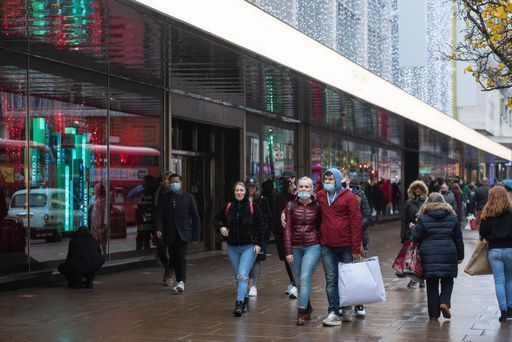Crackdown as ‘buy now pay later’ schemes including Klarna to be regulated
Significant risk to customers, says Financial Conduct Authority

Your support helps us to tell the story
From reproductive rights to climate change to Big Tech, The Independent is on the ground when the story is developing. Whether it's investigating the financials of Elon Musk's pro-Trump PAC or producing our latest documentary, 'The A Word', which shines a light on the American women fighting for reproductive rights, we know how important it is to parse out the facts from the messaging.
At such a critical moment in US history, we need reporters on the ground. Your donation allows us to keep sending journalists to speak to both sides of the story.
The Independent is trusted by Americans across the entire political spectrum. And unlike many other quality news outlets, we choose not to lock Americans out of our reporting and analysis with paywalls. We believe quality journalism should be available to everyone, paid for by those who can afford it.
Your support makes all the difference.'Buy now pay later' (BNPL) firms are facing a crackdown amid fears they are helping shoppers to purchase items they cannot afford, resulting in increased levels of debt.
Companies such as Swedish outfit Klarna, which are particularly popular with young people, are to be regulated by the Financial Conduct Authority (FCA), the Treasury announced on Tuesday.
The move comes after a review of the unsecured credit market and increased popularity of the companies by former FCA chief executive Chris Woolard.
John Glen, economic secretary to the Treasury, said: "Buy now pay later can be a helpful way to manage your finances but there is a real risk that consumers could be harmed as these agreements become ever more popular.
"By stepping in and regulating, we're making sure people are treated fairly and only offered agreements they can afford – the same protections you'd expect with other loans."
BNPL services are available to customers through some large retailers and allow people to split payments immediately and interest free.
But consumers do not view interest free and BNPL services as a form of credit, so do not apply the same level of scrutiny to the agreements.
Checks undertaken by providers tend to focus on the risk for the firm rather than how affordable it is for the customer, the FCA said, adding that it would be easy for customers to build-up unseen debts of £1,000.
Millions of people across the UK use BNPL services and their popularity has ballooned during the Covid-19 pandemic.
The number of BNPL transactions has tripled in 2020, and according to the FCA, there is now a significant risk that these agreements could harm customers,.
Campaigners have previously accused BNPL of using "predatory tactics" to encourage young people to use their services.
Klarna once used Snoop Dogg in an advertisement to promote its scheme, with the rapper telling viewers how "smooth" the service can make paying.
Martin Lewis, the financial campaigner, earlier this year said he was worried that increased use of BNPL schemes could "catastrophise" the finances of young people.
Klarna said it welcomed the findings of the review and that it was the right time to regulate the BNPL sector.
Alex Marsh, head of the firm's UK operations, said he did not accept that companies like his encouraged people to get into debt.
"The shift we see in consumers towards BNPL products such as ours is the opposite – they see it as a way to spread the cost of a purchase but have very structured payments, over one two or three salary cycles," he said.
Join our commenting forum
Join thought-provoking conversations, follow other Independent readers and see their replies
Comments